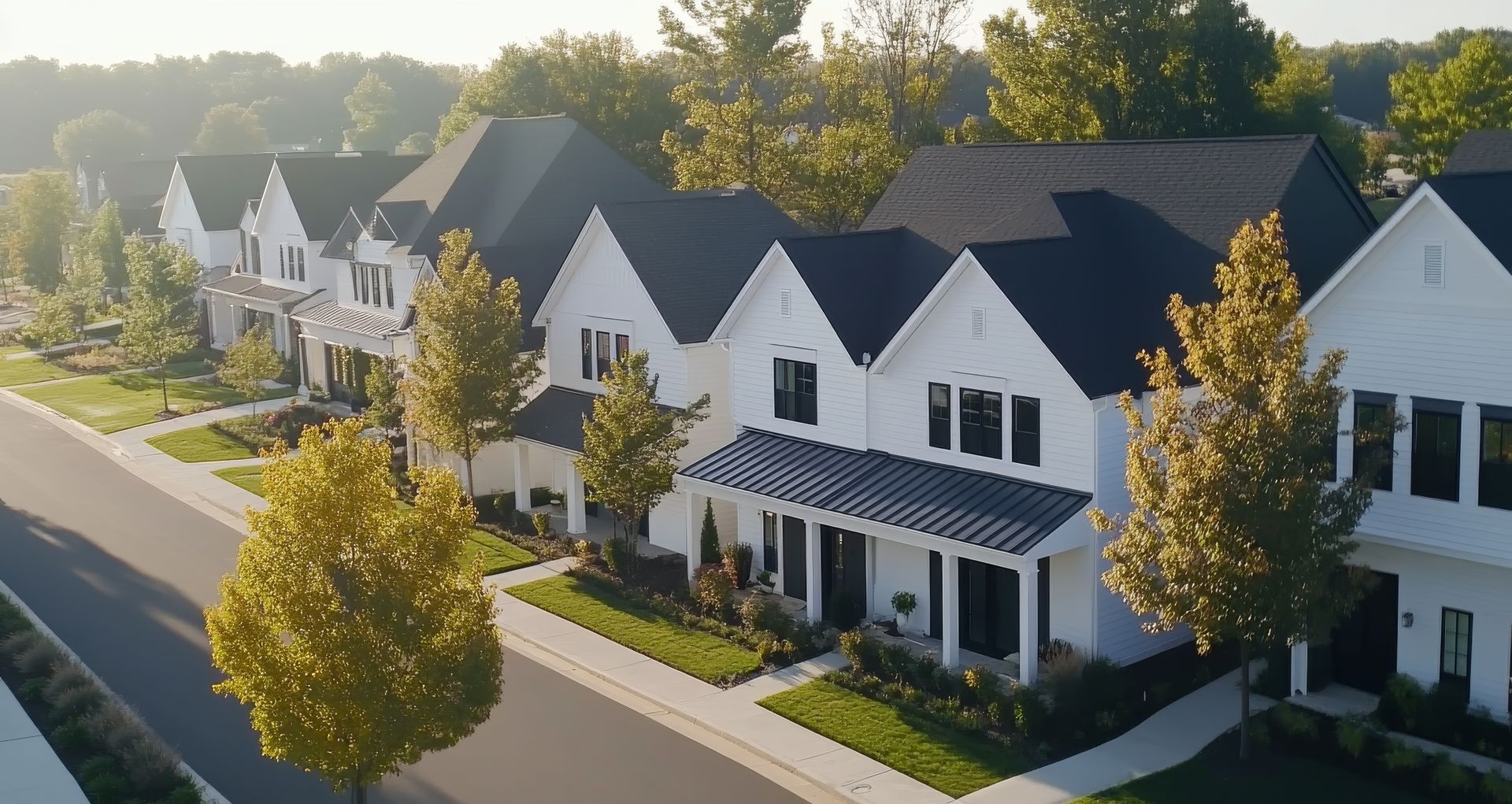Call or Text (888) 541-5287 to get a cash offer on your house!
Top Factors That Make Georgia and Pittsburgh a Seller's Market
The real estate markets in Georgia and Pittsburgh require a dive into their geographic and economic contexts. Georgia, particularly the Atlanta metropolitan area, is a vibrant hub of economic activity, while Pittsburgh is known for its rich history and cultural significance. Both regions play pivotal roles in the national real estate market. Georgia's market is marked by rapid growth and urban expansion, while Pittsburgh has seen a resurgence in demand due to its cultural renaissance and economic diversification. Cultural and geographical factors, such as Atlanta's status as a business center and Pittsburgh's historical charm, significantly shape these markets.
Population Growth Trends
Population growth trends in Georgia and Pittsburgh have a profound impact on their real estate landscapes. Georgia, especially Atlanta, has experienced significant population growth due to urbanization and an influx of young professionals. Pittsburgh, on the other hand, has seen a steady population with a growing interest from millennials and retirees seeking affordable living. These demographic shifts have influenced housing demand, with millennials driving the demand for urban living spaces and retirees seeking suburban comfort.
Economic Factors
Economic factors are crucial in driving seller's markets in both regions. Georgia's robust economic growth, bolstered by industries like technology, healthcare, and education, has created numerous job opportunities, attracting new residents and increasing housing demand. Similarly, Pittsburgh's economic landscape is strengthened by its tech industry and renowned educational institutions. High-income levels and low unemployment rates further fuel the housing market in these areas. Government incentives, such as tax credits for first-time homebuyers, also support market growth.
Supply and Demand Dynamics
The housing market in Georgia and Pittsburgh is characterized by a dynamic interplay of supply and demand. In Georgia, new housing developments and urban renewal projects are attempting to meet the growing demand, while in Pittsburgh, limited supply has led to competitive bidding and rising prices. Housing affordability remains a concern, with many residents in both areas struggling to find affordable options. For a comprehensive analysis of these trends, consult a real estate market report.
Advantages for Sellers
Sellers in Georgia and Pittsburgh enjoy several advantages, including higher prices and quicker sales. The competitive nature of these markets often leads to cash offers, reducing the need for extensive home improvements or staging. Recent successful sales demonstrate this trend, with properties often selling above the asking price and within days of listing.
Challenges for Sellers
Sellers also face challenges, such as competition from new listings and the need for accurate pricing. Economic fluctuations pose a risk to market stability, and legal considerations, such as zoning laws, must be navigated carefully. In Georgia, for instance, understanding local regulations is crucial for a smooth transaction.
Local Developments and News
Local developments and news stories continue to shape the real estate landscape in these regions. In Georgia, infrastructure projects like the expansion of public transit systems are enhancing connectivity and boosting property values. Pittsburgh's community initiatives, such as efforts to revitalize historic neighborhoods, are attracting new residents and investors. These developments are expected to have a lasting impact on market conditions.
Expert Opinions
Experts offer varied opinions on the future of these markets. Some predict continued growth in Georgia due to its economic resilience, while others foresee a stabilization in Pittsburgh as the market adjusts to new demands. National economic conditions and policy changes, such as interest rate fluctuations, could also influence these markets. Technological advancements, like virtual reality tours and digital transactions, are expected to play a significant role in shaping future real estate trends.
Cultural and Lifestyle Attractions
Cultural and lifestyle attractions make Georgia and Pittsburgh desirable places to live. Georgia's vibrant arts scene and diverse culinary offerings attract a wide range of residents, while Pittsburgh's historical sites and community-focused lifestyle appeal to families and retirees. These attractions not only enhance the quality of life but also drive property values and market demand.
Case Studies of Successful Home Sales
Case studies of successful home sales in Georgia and Pittsburgh reveal strategies employed by sellers to maximize returns. In Georgia, sellers often capitalize on market conditions by setting competitive prices and leveraging high demand. In Pittsburgh, unique challenges, such as historic preservation requirements, are navigated to achieve successful sales outcomes.
Geographic and Environmental Considerations
Geographic and environmental considerations also play a role in these markets. Proximity to natural attractions, like Georgia's mountains and Pittsburgh's rivers, influence property values. Environmental factors, such as climate and the risk of natural disasters, are important considerations for buyers and sellers alike. Regional planning and zoning laws, particularly in urban areas, impact housing development and market dynamics.
Technological Innovations in Real Estate
In recent years, technological innovations have significantly impacted the real estate markets in Georgia and Pittsburgh. The use of virtual reality (VR) and augmented reality (AR) has transformed the home buying experience, allowing potential buyers to explore properties remotely. These technologies provide immersive tours that save time and resources for both buyers and sellers. Digital platforms streamline transactions, making processes like signing contracts and transferring funds more efficient and secure. The integration of smart home technology is another trend influencing buyer preferences, with homes equipped with automated systems for security, lighting, and climate control becoming increasingly desirable.
Infrastructure and Transportation Developments
Infrastructure and transportation developments play a crucial role in shaping the real estate landscape. In Georgia, the expansion of highways and public transit systems is enhancing accessibility and connectivity, thereby increasing property values in previously underserved areas. Similarly, Pittsburgh's investment in modernizing its public transportation network is improving commutes and attracting more residents to urban centers. These improvements not only make commuting more convenient but also contribute to economic growth by connecting communities and fostering business opportunities. As a result, areas with improved infrastructure often see a rise in demand for housing, benefiting sellers in these markets.
Environmental and Sustainable Housing Trends
Environmental consciousness and sustainable housing trends are gaining traction in both Georgia and Pittsburgh. Buyers are increasingly interested in eco-friendly homes that offer energy efficiency and sustainability features. This includes properties with solar panels, energy-efficient appliances, and sustainable building materials. In response, developers are incorporating green building practices to meet this demand, resulting in homes that are not only environmentally friendly but also cost-effective in terms of energy consumption. These trends are expected to continue, influencing buyer preferences and shaping the future of real estate markets in these regions.
Impact of Corporate Relocation and New Businesses
Corporate relocation and the establishment of new businesses significantly affect the real estate climate. In Georgia, particularly Atlanta, the influx of corporations has boosted housing demand as they bring with them a new workforce seeking residential options. Pittsburgh, as a growing tech startup hub, attracts new professionals who spur real estate activity through demand for both residential and commercial properties.
Influence of Educational Institutions
Educational institutions in both Pittsburgh and Georgia play a crucial role in driving housing demand. Universities and colleges attract a transient population of students and staff, influencing rental markets and creating stable demand for housing. This, in turn, impacts real estate conditions, especially in areas close to these institutions.
The real estate markets in Georgia and Pittsburgh are shaped by a complex interplay of demographic, economic, and cultural factors. Understanding these elements is crucial for navigating these dynamic and competitive markets. The ongoing developments in technology, infrastructure, and sustainability further enhance the appeal of these regions for buyers and sellers alike.
For inquiries or assistance with buying or selling properties in these dynamic markets,
contact 360 Home Offers today. Our team of experts is dedicated to providing exceptional service and guidance tailored to your real estate needs.











